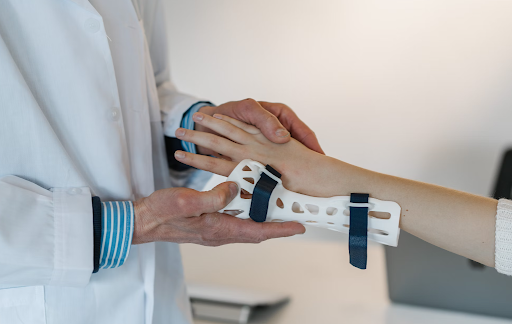Recovering from orthopedic surgery is a comprehensive process that requires careful attention to various aspects of your health and well-being.
Whether you’ve undergone joint replacement, fracture repair, or spinal surgery, following a structured recovery plan is essential for restoring mobility, reducing pain, and regaining functionality. Here are five crucial tips to help you achieve a successful recovery after orthopedic surgery.
1. Follow Your Doctor’s Post-Operative Instructions
After your orthopedic surgery, your surgeon will provide specific post-operative instructions tailored to your procedure and individual needs. These instructions typically include guidelines for wound care, medication management, activity restrictions, and follow-up appointments.
Adhering strictly to these recommendations is vital for promoting healing and minimizing complications. Proper wound care helps prevent infections, while following medication schedules ensure effective pain management and reduce inflammation.
Activity restrictions protect the surgical site and allow tissues to heal properly, while attending follow-up appointments allows your surgeon to monitor your progress and address any concerns early on.
2. Engage in Physical Therapy and Rehabilitation
Physical therapy is a cornerstone of orthopedic recovery, focusing on restoring strength, flexibility, and range of motion. Your orthopedic surgeon or physical therapist will design a personalized rehabilitation plan based on your surgery and recovery goals.
This plan will include specific exercises and activities to improve joint mobility, strengthen muscles, and enhance overall functional abilities. Consistency in attending physical therapy sessions and performing prescribed exercises at home is crucial for achieving optimal outcomes and regaining independence in daily activities.
3. Maintain a Healthy Diet and Hydration
Nutrition plays a critical role in supporting healing and recovery after orthopedic surgery. A balanced diet rich in vitamins, minerals, and protein promotes tissue repair, strengthens bones, and boosts immune function. Incorporate lean proteins, whole grains, fruits, vegetables, and healthy fats into your diet to provide essential nutrients for healing.
Adequate hydration is also essential for maintaining optimal bodily functions and supporting recovery processes. Ensure you drink enough water throughout the day, especially if you’re taking medications that may cause dehydration.
4. Manage Pain and Discomfort Effectively
Pain management is integral to your comfort and progress during recovery. Your healthcare team will develop a personalized pain management plan based on your pain levels, medical history, and surgical procedure.
This plan may include medications to control pain and reduce inflammation, as well as alternative therapies such as ice or heat therapy to alleviate discomfort and promote healing. It’s important to communicate openly with your healthcare provider about your pain levels.
5. Gradually Increase Activity Levels
As you progress in your recovery, gradually reintroduce activities and exercises under the guidance of your healthcare team. Start with gentle movements and low-impact activities that do not strain the surgical site, such as walking or range of motion exercises.
Listen to your body and pay attention to any new pain, swelling, or limitations during activities, as these may indicate the need to adjust your activity level or technique. Set realistic goals for increasing your activity over time, and celebrate small achievements as you regain strength and mobility.
This plan may include medications to control pain and reduce inflammation, as well as alternative therapies such as ice or heat therapy to alleviate discomfort and promote healing. It’s important to communicate openly with your healthcare provider about your pain levels.
Whether you’ve undergone joint replacement, fracture repair, or spinal surgery, following a structured recovery plan is essential for restoring mobility, reducing pain, and regaining functionality. Here are five crucial tips to help you achieve a successful recovery after orthopedic surgery.
Start with gentle movements and low-impact activities that do not strain the surgical site, such as walking or range of motion exercises.





